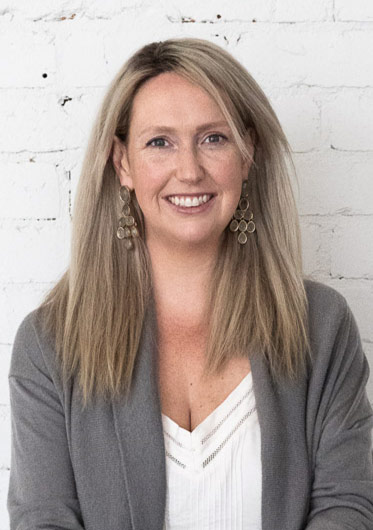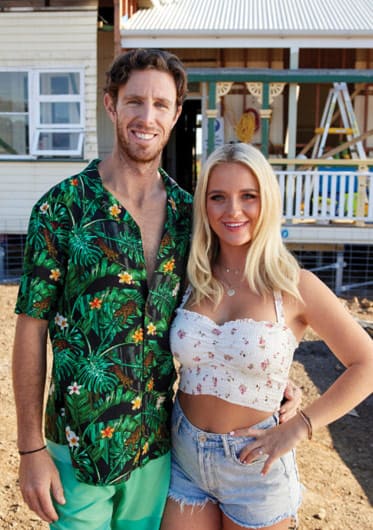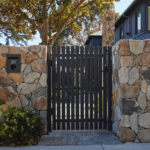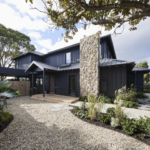How The Block influences builders
Rebeka says that society often expects people to know what’s involved in building, but most of us are unaware of the process. “I think shows like The Block do perpetuate that, although I do think this season, where you’re seeing couples who are not coping, it brings to light how hard it is. I don’t think that it’s actually on those couples. It’s a really hard process, and they’re put under an immense amount of pressure.”
She adds that tradie couples such as Dylan and Jenny have a big advantage over newbies such as Ankur and Sharon.
“They know the process; they know the pathway,” she says. “They know even things like proportions. They’ve been in enough rooms to know which proportions are going to work well. They don’t have to learn what height you need to run the tiles to, or what height to fit the vanity off because they know that. I understand the trades are guiding them through the process, but there are so many little decisions.”
“It’s also very public, which is very challenging. I think people need to have sympathy that they don’t have that experience. But it’s also a good demonstration of why we need to learn the process. Just because we see people do it on The Block doesn’t mean that it’s realistic for all of us.”
Rebeka says that the design and building industry has gone through dramatic changes in recent years, and part of that is due to the influence of shows such as The Block.
“It has a huge following,” she says. “A few of the ex-contestants are good friends of mine – we work with them in the industry now and we know them. If we look at the design industry as a whole in the last 20 years, we’ve seen a massive change. Part of that’s social media and having access to finished products and projects, part of that is the technology and the materials coming out.”
“It means that people have more choice and more opportunity to create the home of their dreams. But also, they’ve got more access to different finishes. There’s huge variety in brickwork, for example. We now aspire to have a better home and to be able to renovate it and have it styled and beautiful. And I think shows like The Block are fantastic for that. They show what can be done, and allow people to build on their investment, because your home is an investment.”
The BuildHer Collective team is a big user of a variety of CSR products. “We use Gyprock plasterboard; it really is a key building material,” Rebeka says. “The PGH bricks are fantastic too – the range and the variety that you can get now – and you can do a lot with them. It’s about using these beautiful materials, but being really smart about how we use them.”
Rebeka is a big fan of Hebel, as well, because of its thermal mass.




